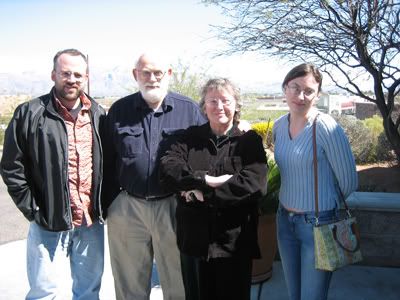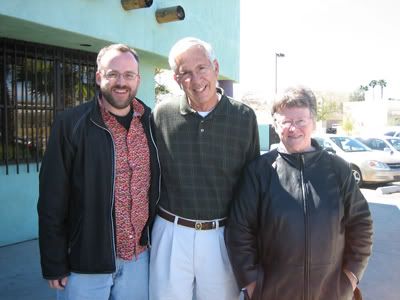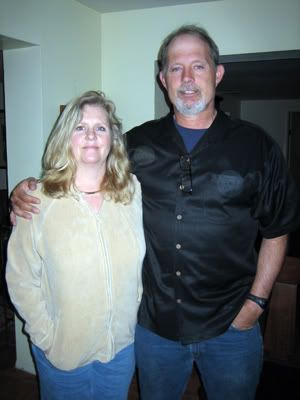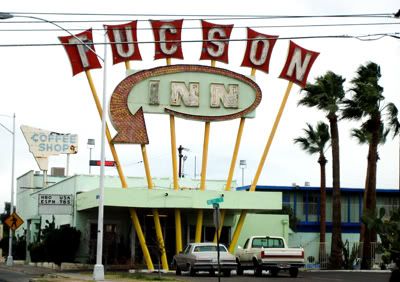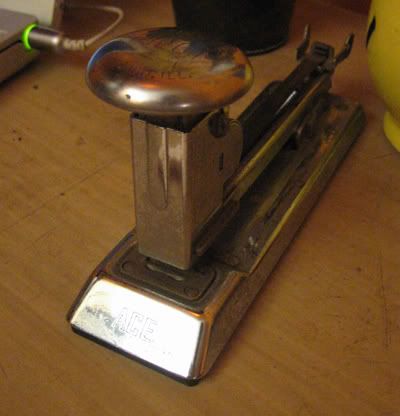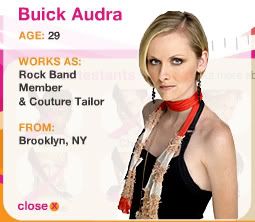
"Positive Cash Flow = Happiness." This was Dad’s prescription for life and I used to argue passionately that he was wrong.
Money can’t buy you Love, I’d say,
and therefore cannot buy you Happiness! At 17, I believed the world could run on Love. I’ve now, at 27, reconsidered my opposition. I propose a revised formula:
Positive Cash Flow = Success.
Strictly speaking, positive cash flow (PCF) is simply more money coming in than you have going out. If this is true for you, congratulations, you’ve Made It! According to an article entitled
"'Generation Debt' is going deep into the red" at MSNBC.com, “the median home price rising by 26 percent in the past five years — while young adults' income has gone up less than 10 percent —
people in their twenties are playing an endless game of catch-up.”
This could be, on one hand, quite depressing. I’ve had a job since I was 14, I’ve always worked at least part-time while going to school and, with Dad "Cash Flow" Kingman's help, escaped student loan debt. Pardon me for thinking that by now, at 27, I’d be well on my way to buying a home — or at least an occasional night on the town. Instead I’m at Barnes & Noble, guiltily picking up Suze Orman’s latest book
Young, Fabulous and Broke. One might lose sleep wondering if they had just given up a latte here and there, skipped the iPod for a generic MP3 player or passed on that Old Navy sale would they be
able to afford a bit more Fabulous for the rest of the Young part? (Maybe if one hadn’t moved to New York City, but how unfabulous that would be?)
In 2001 I was employed* by
Town & Country magazine which is aimed at the incredibly affluent. Their entire ad sales strategy was based on the fact that, oh happy day, the top 1% of the population controlled 95% of the wealth and yes,
the rich keep getting richer**. They sold ads based on testimonials that a reader, after seeing an article on a certain resort spa, called up and booked the entire place for a weekend for her and her friends. Most Americans aspire to this kind of wealth. The sad truth is that most of us are fighting over one very small slice of the pie.
Through some accidental reconnaissance, I came across a delightful book entitled
How Not to Get Rich:
Or Why Being Bad Off Isn't So Bad by Robert Sullivan. Sullivan argues, tongue firmly in cheek, that every day a large number of Americans will join the likes of Mark Twain and Thomas Jefferson in the “increasingly crowded halls of the non-elite." by becoming unrich. Many echo our Calvinist forefathers' view that failure to accummulate obscene amounts of wealth is a personal fault of character. Sullivan points out that not only is that not the case, the unrich are a by product of our economy, but that it wasn't until the Great Depression that we saw fit as a society to put in some safety nets like worker's comp and unemployment.
Sullivan wryly admonishes us to cultivate our skills at becoming a nonmillionaire by majoring in medieval literature; marrying for love and reading, a lot. While I wholeheartedly agree I'm hoping to cultivate some positive cash flow while enjoying
my rich, yet unrich, life.
* I graduated from college into an economic downturn. I was technically freelancing (40+ hours per week) at T&C while there was a “hiring freeze.” The "hiring freeze" lasted until 2003.
** 2002 proved T&C’s highest ad revenue in it's 150 year history in spite of a post-9/11 industry-wide slump, owing largely to the fact that if uber-rich don’t buy Prada bags, then the terrorists have truly won.







